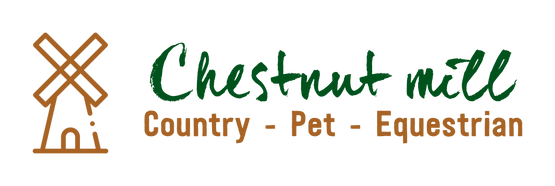From £6.99

A Guide to Duck & Goose Feed
Whether you keep ducks or geese on a farm, small holding, the allotment, or simply have a couple of ducks in the back yard, choosing the right feed for your chickens is crucial to ensure they have good health and continue to lay lots of great tasting eggs for you. See our guide below to help you select the right feed for you duck or goose.
We have a wide range of duck & goose feed to take your birds through their life cycle from Duckling / Gosling to laying hen to finishing. The feed comes in all major forms; crumb, pellet and mash. These are from a wide variety of popular brands including Heygates, Allen & Page, Small Holder Range, The Organic Feed Company, Farmgates, Versele Lage, Verm-X, Feathers & Beaky, Dodson & Horrel, Fancy Feed, Badminton, Spillers, & Hutton Mill
Duck & Goose Feed Guide
Even those that are free range will need an additional complete feed to ensure they are in tip top condition. All of the information available can be quite confusing so we have put together a basic guide to help you through all the jargon. If you have any further questions please get in touch and we will do our best to help you find the perfect feed for your hens.
Duck & Goose Feed Types
Duck and Goose feed is generally split into 4 main feed types. These are generally based on the age of the bird and the changing dietary needs throughout its life.
- Starter Feed - Hatch to 4 weeks - Generally in crumb form for ease of swallowing. This ensures the baby duckling / gosling has all of the extra nutrients it needs during the crucial first 4 weeks of development. Generally high in protein to give them all of the nutrients they need for strong growth. It is important not to feed them on this over the age of 6 weeks to avoid liver damage. It is best to gradually phase this feed out over a 2 week period from week 4 to 6. Move onto a Grower feed next.
- Grower Feed - 4 weeks to 16/18 weeks (or 1st lay) - Lower protein level but higher carbohydrates gives them all the energy they need as they grow into healthy adult birds. Lower calcium levels than layer feed so once laying happens you need to switch the bird over to a special layer feed.
- Layer feed - 16/18 weeks (or 1st lay) onwards - Higher calcium levels and often other additives to help increase egg quality and quantity. Feeds with worming treatments included can often be used whilst ensuring the eggs remain edible.
- Finisher Feed - 16/18 weeks or 7 days before slaughter. These ensure the bird is kept fit and healthy, but with no medication so that the meat is fit to eat. Often the same feed as a grower mix.
Duck & Goose Feed Ingredients
Our range of complete Duck & Goose feeds have been carefully put together by the manufacturers to ensure they contain the right balance of nutrients for each stage of the birds life. Each feed will contain:
- Protein - This varies based on the age of the bird and is important for growth and egg production
- Calcium - Important for egg production and growth
- Amino acids – lysine and methionine are the most common.
- Vitamins – most often A, E, D3 and B12 plus
- Trace mineral elements such as phosphorus and copper sulphate.
- Enzymes to help with digestion
- Fiber - usually a grain in the feed.
Additives
Some feeds will have extra additives to support the health of the ducks and geese. These can sometimes be desirable, but are not always necessary and can have an impact on how you need to care for them
- Medicated: This is feed that has been treated with a coccidiostat to help duclings / goslings to overcome any possible attack by coccidian protozoa.
- Un-Medicated: Feed without a coccidiostat. This is particularly important prior to slaughter.
- Worming Treatment - these are generally added so that you can provide the hens with a constant level of protection at a lower dose.
- Some feeds may have other additives such as Omega 3, but this varies brand to brand. This added Omega 3 increases the egg’s Omega 3 count, making eggs healthier for people to eat.
Duck & Goose Feed Forms
Duck and Goose feed comes in several different forms which may seem confusing! To help you make the right choice, here’s a little more information:
- Pellets: Duck & Goose feed is made into pelletised form for ease of use and decreased waste.
- Crumbles: Pellets that have been reduced in size for ease of eating.
- Mash: Mash is basically unprocessed feed. The particles are very small almost powder-like. It can be used for duckling / gosling or adults and it can be fed dry or wet.
